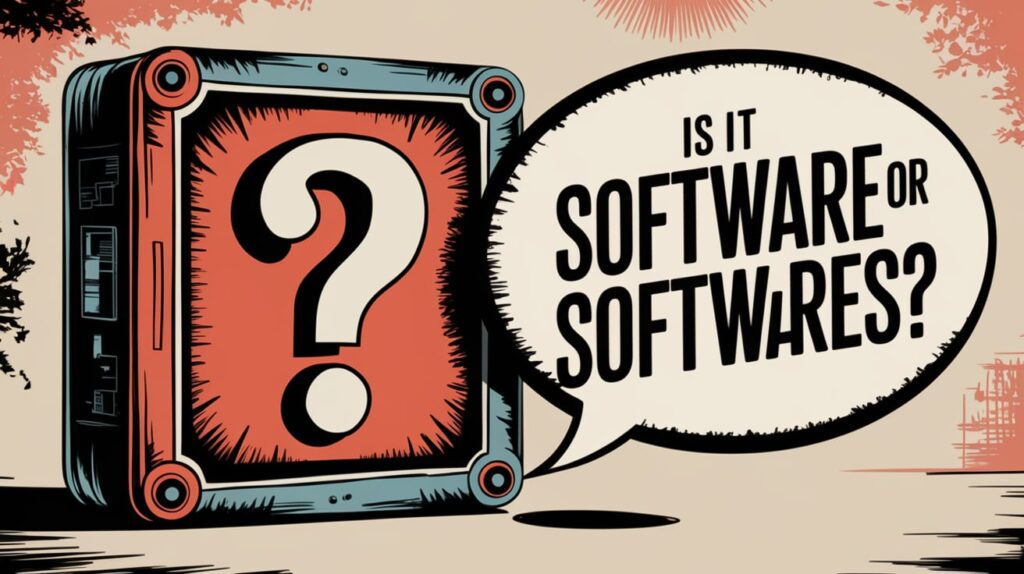You’ve probably seen it written both ways software and softwares.
So which one is correct?
Since most English nouns form plurals by adding an “s,” it feels natural to assume that “software” should become “softwares.” But English grammar doesn’t always follow simple patterns.
The word software behaves differently because it’s an uncountable noun and that changes everything.
In this updated 2026 guide, we’ll clearly explain:
• Whether “softwares” is ever correct • Why software does not change in plural form • How mass nouns work in English • What to say instead of “softwares”
By the end, you’ll know exactly which form to use in professional, academic, and everyday writing.
What Does the Word “Software” Mean?
Software is a broad term that refers to a collection of programs, data, and instructions that tell a computer how to perform specific tasks. It’s an essential part of the technology we use daily, ranging from operating systems to mobile applications.
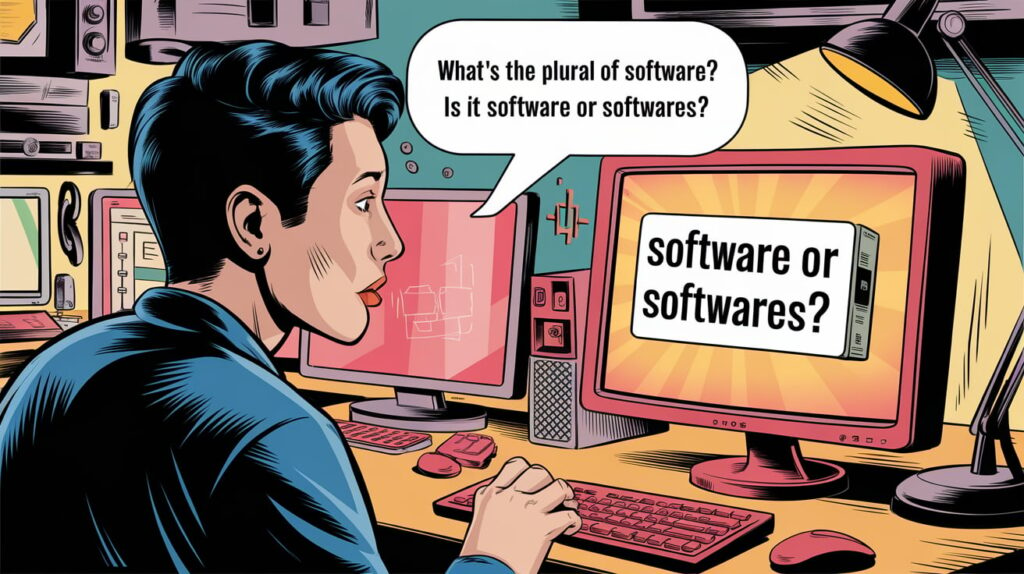
Read more : Requester or Requestor Spelling – Grammar Beacon
Types of Software
System Software: This includes operating systems like Windows or macOS that manage hardware and software resources.
Application Software: Programs like Microsoft Word or Adobe Photoshop that help users perform specific tasks.
Utility Software: Tools that help manage, maintain, or control computer resources, such as antivirus programs.
Understanding the different types of software will help contextualize our discussion on its plural form.
Read more : Skill-Set vs Skillset – Grammar Beacon
Is It Software or Softwares? The Correct Plural Form
When we ask about the plural of software, the answer is simple: it remains software. This can be surprising since many nouns in English follow a straightforward pluralization rule by adding an “s” at the end.
However, software is a mass noun, meaning it refers to a substance or concept that cannot be counted individually.
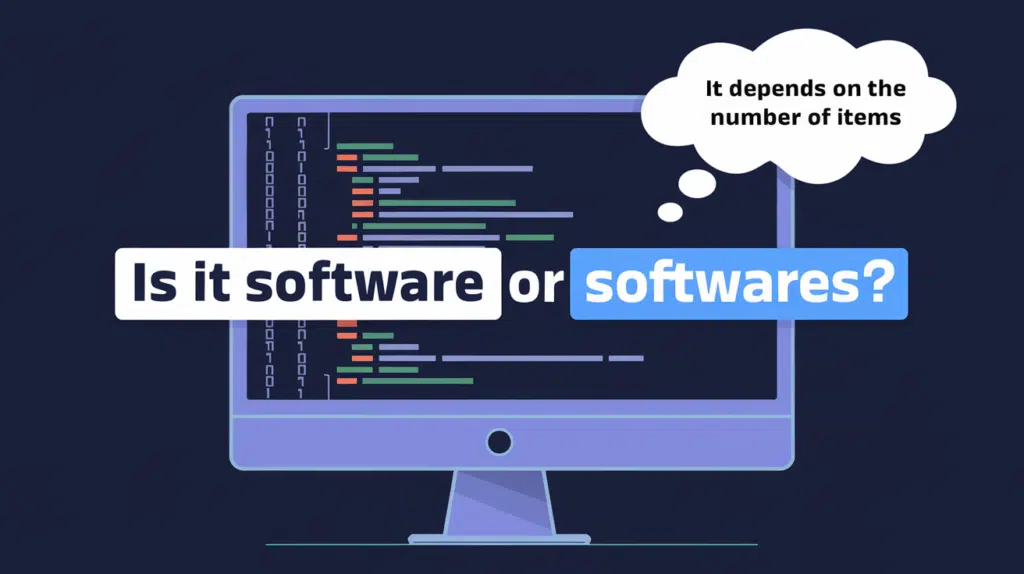
Why is This Important?
Recognizing that software is a mass noun helps clarify its correct usage. Just as we wouldn’t say “furnitures” or “informations,” we don’t say softwares. Mass nouns describe a collective whole rather than individual items, which is essential for accurate communication.
Other Uncountable Nouns That Don’t Change in Plural
To further illustrate how mass nouns work, let’s look at other examples that behave similarly:
Furniture: Remains furniture in all contexts.
Equipment: Always equipment, regardless of quantity.
Luggage: Consistently referred to as luggage, whether you have one bag or several.
Read more : Luis’ or Luis’s Possessives – Grammar Beacon
Characteristics of Mass Nouns
Indivisible: Mass nouns cannot be counted as separate units.
Collective: They refer to a group or substance as a whole.
This categorization helps us understand why software behaves the way it does.
Origins of the Word “Software”
The term software first appeared in the late 1950s, coined by mathematician John Tukey. It combines “soft,” which denotes flexibility, and “ware,” referring to goods or items. This innovative term reflects the shift in technology as computers became integral to daily life.
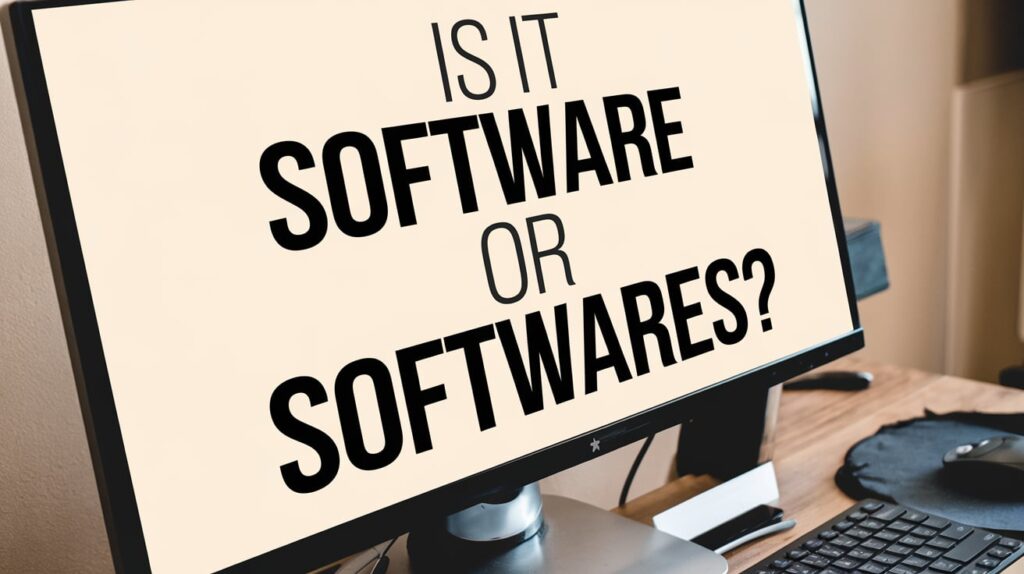
Read more : Excel or Accel – Grammar Beacon
The Evolution of Software
Over time, the definition of software has expanded to include various categories, reflecting advancements in technology:
Embedded Software: Found in devices like cars or appliances that control specific functions.
Cloud Software: Programs hosted on the internet, allowing for access from anywhere with an internet connection.
Understanding these categories can deepen your appreciation of the term software and its relevance in our digital age.
Can Someone Use Softwares as a Plural of “Software”?
While you may occasionally hear the term softwares in informal contexts, it is generally considered incorrect in standard English. The confusion often arises from the tendency to apply conventional pluralization rules, but this approach doesn’t fit mass nouns.
Read more : Agreeance vs Agreement – Grammar Beacon
Common Misconceptions
Some argue that because we have terms like hardwares, we should be able to use softwares as well. However, it’s essential to remember that hardware and software are treated differently.
Although hardware can sometimes be pluralized, software does not follow the same rule.
Read more : Scrapped vs Scraped – Grammar Beacon
Examples in Context as Singular and Plural
Let’s explore both singular and plural contexts to illustrate the correct usage of software.
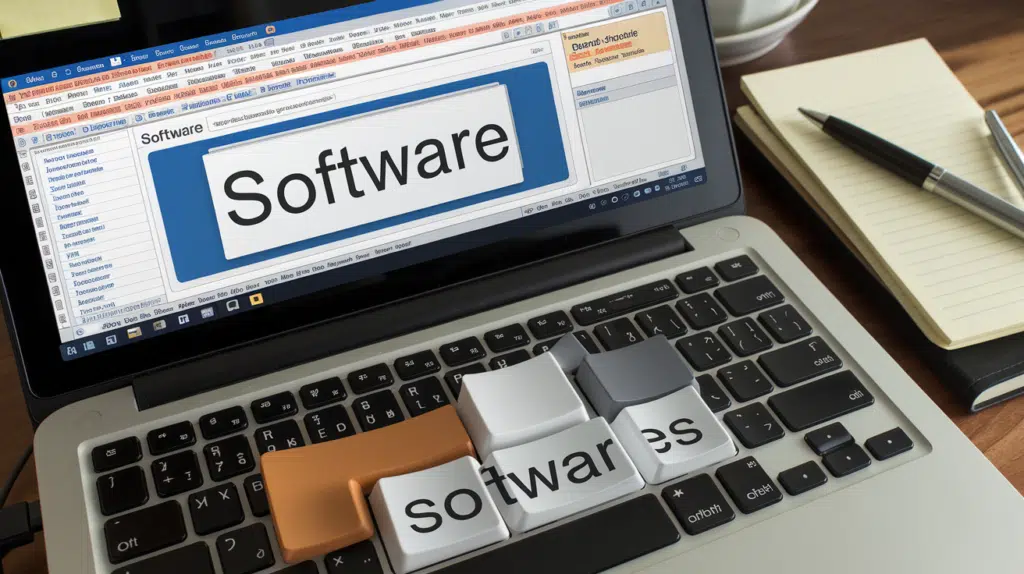
Singular Usage (“Software”)
- I installed new software on my computer.
- This software helps manage our finances.
Plural Usage (Alternatives for “Softwares”)
Instead of saying “softwares,” consider these alternatives to convey the idea of multiple software types:
- There are various types of software available for purchase.
- Many software applications can enhance productivity.
Contextual Clarity
When discussing multiple software options, clarity is key. Instead of using softwares, you might say, “different software applications” or “a range of software solutions.” This keeps your language precise and adheres to grammatical norms.
Read more : “Totalling” vs. “Totaling”: Navigating the Spelling Dilemma – Grammar Beacon
Possessives in Relation to Software
Understanding how to use possessives with software can further enhance your writing. Possessives indicate ownership or relation, and their usage varies depending on whether the noun is singular or plural.
Examples of Possessives
Singular Possessive:
“The software’s interface is user-friendly.”
In this case, the interface belongs to the software.
Plural Possessive:
“The software developers’ contributions were invaluable.”
Here, the contributions belong to multiple software developers.
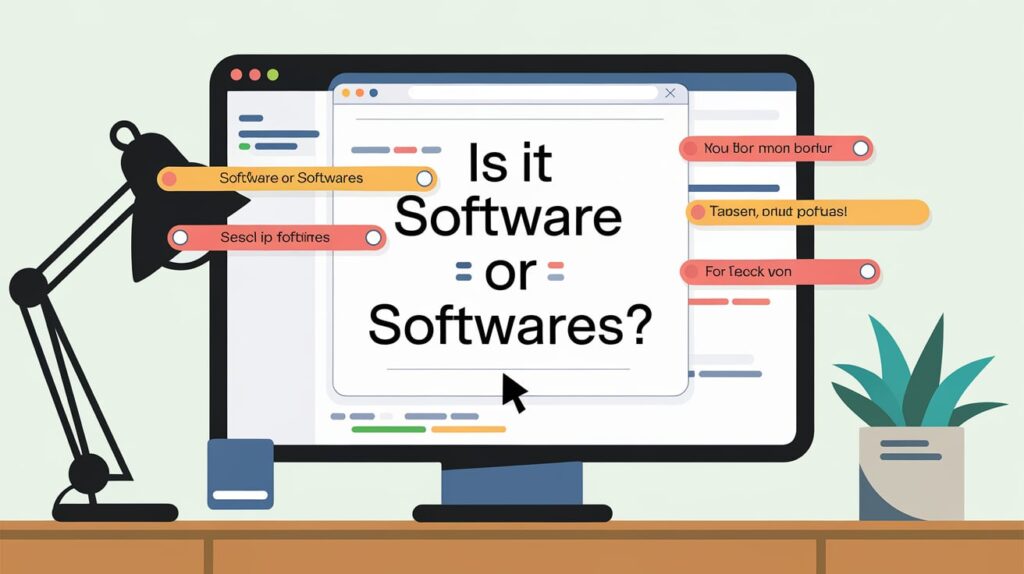
Guidelines for Forming Possessives
- Singular Nouns: Add an apostrophe and “s” (e.g., software’s).
- Plural Nouns Ending in “s”: Add only an apostrophe (e.g., developers’).
- Plural Nouns Not Ending in “s”: Add an apostrophe and “s” (e.g., children’s).
Examples in Context
- Singular: “The software’s capabilities have expanded significantly.”
- Plural: “Many software companies’ products have revolutionized the industry.”
Common Mistakes When Using the Word Software
Add short points:
• Writing “softwares” in formal documents • Confusing countable and uncountable nouns • Assuming all tech terms follow regular plural rules
Google loves “Common Mistakes” sections for featured snippets.
FAQs
Is “softwares” ever correct?
No. In standard English, “softwares” is considered incorrect. Software is an uncountable noun.
Why doesn’t software have a plural form?
Because it refers to a collective concept rather than individual countable items.
How do you refer to multiple software programs?
Use phrases like “software applications,” “software programs,” or “types of software.”
Is hardware pluralized differently?
Hardware is also generally treated as uncountable in standard English.
Can I say different softwares?
No. The correct phrase is “different types of software.”
Conclusion
The plural of software is simply software no added “s,” no exceptions in standard usage.
Because software is an uncountable noun, it refers to a collective concept rather than individual items. When you need to show variety, use phrases like “software applications” or “types of software.”
Understanding this rule strengthens your grammar, improves professional writing, and helps you avoid one of the most common English mistakes in tech communication.
Small grammar detail big credibility boost.

James Logan is a seasoned blogger and language enthusiast behind Grammar Beacon. With years of experience in grammar and writing, James shares his expertise through insightful and engaging content. His passion for clear communication and linguistic precision shines in every post, making complex grammar concepts accessible and enjoyable for readers. Follow James for expert advice and tips to refine your writing skills.

